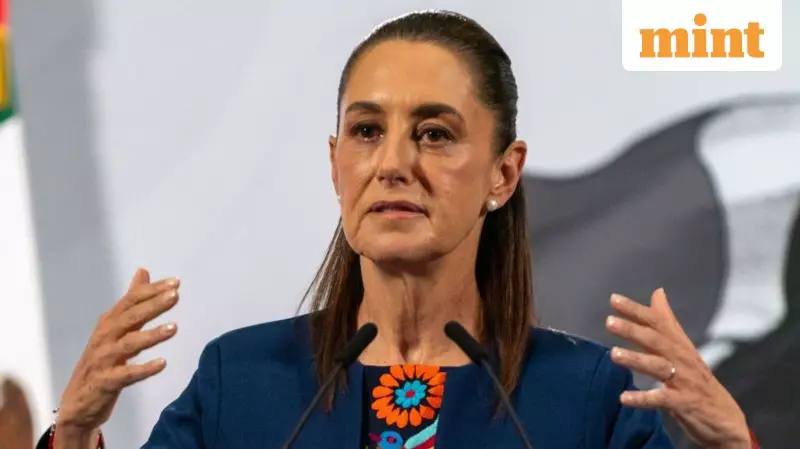
Mexico Draws Red Line Against US Military Action
In a firm stance against foreign intervention, Mexico's President Claudia Sheinbaum has unequivocally ruled out allowing United States military strikes against drug cartels on Mexican soil. This declaration came on Tuesday, just one day after US President Donald Trump expressed willingness to take extreme measures to combat drug trafficking.
"It's not going to happen," President Sheinbaum stated emphatically during her daily press briefing. She revealed that Trump has repeatedly suggested military intervention options, offering "whatever you need to fight the criminal groups." However, the Mexican leader maintained her consistent position that while collaboration is welcome, sovereignty is non-negotiable.
Diplomatic Tensions and Border Incident
The political disagreement escalated with a mysterious border incident that further complicated bilateral relations. On Monday, unidentified men arrived by boat at Playa Bagdad in northeast Mexico and installed official-looking signs declaring the area restricted US Department of Defense property.
The signs, written in both English and Spanish, warned against unauthorized access, photography, or drawings of the area. Mexican authorities quickly responded, with the country's Navy removing the signs that appeared to be on Mexican territory. President Sheinbaum confirmed that the International Boundary and Water Commission, the binational agency responsible for border demarcation, had become involved in resolving the situation.
Investigations revealed that contractors working for an unspecified US government entity had placed the signs, though neither the US Embassy in Mexico nor the Pentagon immediately commented on the incident.
Ongoing Bilateral Discussions
Despite the strong positions from both leaders, diplomatic channels remain open. Sheinbaum noted that she has communicated Mexico's stance directly to both President Trump and US Secretary of State Marco Rubio, adding that "they have understood" Mexico's position on sovereignty.
The US Embassy in Mexico later attempted to ease tensions by sharing a video on social platform X that included previous comments from Rubio assuring that the US would not take unilateral action in Mexico.
The border area where the signs appeared holds additional sensitivity due to its proximity to the SpaceX Starbase facility in Texas, which sits adjacent to Boca Chica Beach on the US side of the Rio Grande. The facility, under contract with both the Department of Defense and NASA, has previously caused concerns in Mexico following rocket debris found on the Mexican side after a test explosion in June.
This latest diplomatic friction adds to existing tensions, including Trump's controversial proposal to rename the Gulf of Mexico as the Gulf of America, which Mexico has also firmly rejected. As both nations navigate this complex relationship, the fundamental question of sovereignty versus security cooperation remains at the forefront of bilateral discussions.





